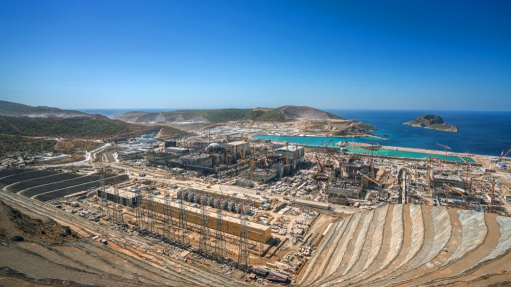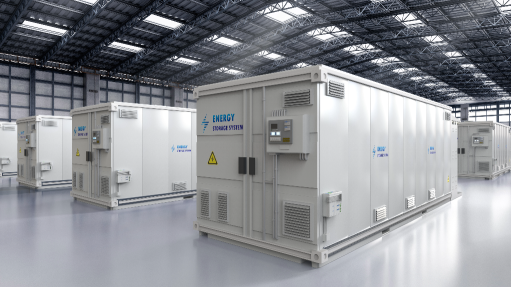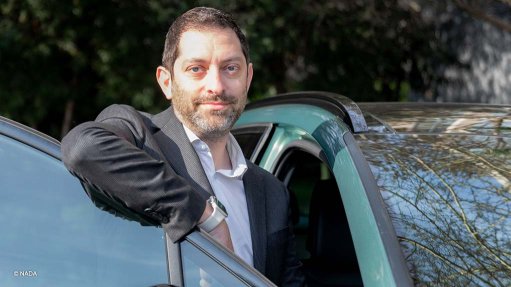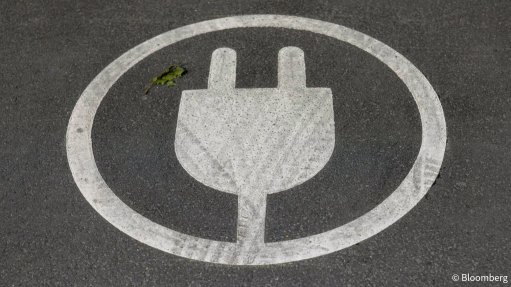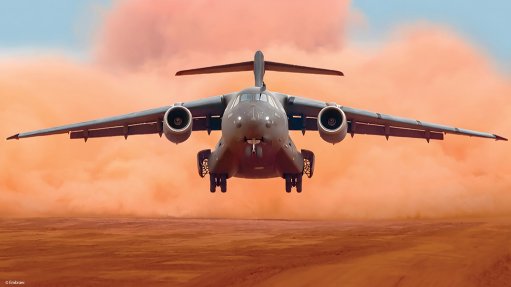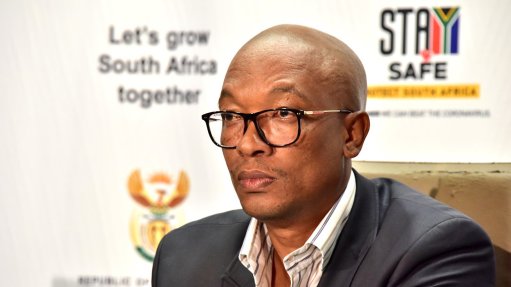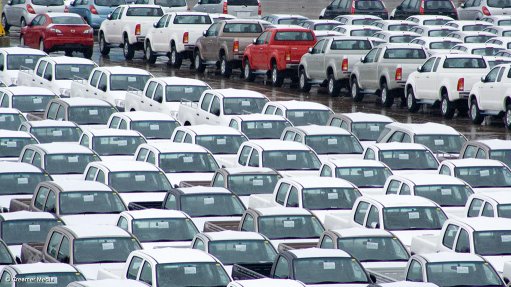Company Annoucements:Connecting the tracks for a first world South Africa
This article has been supplied.
“Rail volumes in South Africa have remained flat for the past 20 years while roadvolumes have increased steadily.
This is not a sustainable trend. If a shift from road to rail does not start to take place, the cost of transportation will continue to rise at greater levels than inflation,” says Dewald Potgieter, Technical Executive at GIBB.Potgieter says South Africa has about 21,000km of railway track - 90% of which was built before 1925. “While the track has been maintained and expanded since the 1920s, there has been negligible railway infrastructure capacity expansion.” South Africa has one of the longest railway networks worldwide (about the 11th longest amongst the top 25 countries) with the leaders being the United States, Russia, China and India. “Of our 21,000km of railway track, however, we are currently using about half. As the road network has expanded over the years, it has brought about a reduction in rail freight transportation and long-distance passenger rail usage,” says Potgieter. Because rail freight volumes have been static for the past 20 years, South Africa’s position as the tenth largest carrier of rail freight worldwide is on the decline. “South Africa has been transporting just under two hundred million tons of freight by rail per annum for the past two decades. Other countrieshave increased their freight volumes via rail for example Russia transportsabout 65% of all its freight on rail while South Africa transports about 15% on rail.
“Looking at roads by way of comparison - 20 years ago, roughly six hundred million tons of freight was being transported by road in South Africa. This has increased significantly and today close to 1,400-million tonnes of freight is transported via road annually,” says Potgieter.
Admittedly, it is difficult for rail to compete with trucks. “Truck operators/owners do not pay directly for maintenance of roads. Their contribution is through tax, fuel levy and tolls. Rail operators, on the other hand, own the railway infrastructure and have to maintain it. This makes it more difficult for them to offer competitive tariffs for transportation because they have to maintain their assets as well,” says Potgieter.
The answer, says Potgieter, lies in policy. “It’s a debate that dates back to the days of Spoornet. There’s also a school of thought that suggests the fuel levy and taxes road users pay are more than what’s required to maintain the roads. Even if that’s the case, the largest contributors to those levies are private car users and not freight transport companies.” uiu8Passenger rail in South Africa is dominated by short distance commuter trips. “In relation to the rest of the world, we have a fairly high number of commutertrips per annum (about 500 million passenger trips annually) - which places us about 10th or 11th globally, but as soon as distance is brought into the equation, we fall off the scale completely. The level of service required to attract people to long distance rail travel is simply not in place. PRASA is however looking at ways to improve this. A new R123.5bn rolling stock procurement process forms part of this strategy and involves the introduction of more than 7,200 new passenger coaches over next 20 yeuuuiyiars.”
i says the infrastructure will be upgraded to accommodate the new coaches. “Capital projects include modernising priority passenger corridors - in Gauteng, Cape Town and KwaZulu-Natal (KZN) - which will involve upgrading the permanent way, 20 of the busiest stations and the signalling system at a total spend of about R14.5bn. GIBB is currently involved in the Gauteng and KZN projects.”
"On the freight side, Transnet is conducting similar projects, with the focus on creating additional capacity and achieving greater operational efficiency - to the tune of R200bn over the next seven years. The issue for Transnet is freight demand. Their capital expenditure planning has identified projects that will respond to market demand, with the emphasis on partnering with clients to ensure the various long-term capital expansion projects are sustainable. Anexample is the Transnet and Eskom collaboration for transporting coal to the Majuba Power Station,” says Potgieter. Importantly, says Potgieter, proper feasibility investigations need to be conducted for all projects. “In addition, predictability needs to become a priority. If a freight customer puts his consignment on a train, he wants to know it will arrive in time. Japan does it best. Statistics show that less than two percent of their passenger trains arrive late. And they make in excess of 20 billion people trips per year.”Besides the obvious reduction of congestion on the roads, a shift from road to railmakes sense from an environmental responsibility point of view. “Numerous studies show carbon emissions emitted by railway transportation are about half the emissions per ton kilometre of goods transported via road,” says Potgieter. There is also the safety issue. “There is no comparison between road and rail with regard to accidents and fatalities. Most fatalities linked to rail are as aresult of illegal pedestrian crossings rather than train accidents.”
GIBB is involved in numerous rail projects throughout South Africa. “We’re conducting feasibility studies for a number of new railway lines and are involved in basic planning, railway route alignment and economic evaluation for the Baralink line in Johannesburg and the Motherwell Corridor in Port Elizabeth. We are also on the design, construction and monitoring team for the new Bridge City Link in KZN. “We support infrastructure spend being weighted towards rail and are positioned to assist government and parastatals in a professional partnership capacity. As a company of professional engineers who subscribe to a professional code of conduct, we are obliged to act on behalf of the public and know it is in the long term interest of society to find the right balance between road and rail usage.
Comments
Press Office
Announcements
What's On
Subscribe to improve your user experience...
Option 1 (equivalent of R125 a month):
Receive a weekly copy of Creamer Media's Engineering News & Mining Weekly magazine
(print copy for those in South Africa and e-magazine for those outside of South Africa)
Receive daily email newsletters
Access to full search results
Access archive of magazine back copies
Access to Projects in Progress
Access to ONE Research Report of your choice in PDF format
Option 2 (equivalent of R375 a month):
All benefits from Option 1
PLUS
Access to Creamer Media's Research Channel Africa for ALL Research Reports, in PDF format, on various industrial and mining sectors
including Electricity; Water; Energy Transition; Hydrogen; Roads, Rail and Ports; Coal; Gold; Platinum; Battery Metals; etc.
Already a subscriber?
Forgotten your password?
Receive weekly copy of Creamer Media's Engineering News & Mining Weekly magazine (print copy for those in South Africa and e-magazine for those outside of South Africa)
➕
Recieve daily email newsletters
➕
Access to full search results
➕
Access archive of magazine back copies
➕
Access to Projects in Progress
➕
Access to ONE Research Report of your choice in PDF format
RESEARCH CHANNEL AFRICA
R4500 (equivalent of R375 a month)
SUBSCRIBEAll benefits from Option 1
➕
Access to Creamer Media's Research Channel Africa for ALL Research Reports on various industrial and mining sectors, in PDF format, including on:
Electricity
➕
Water
➕
Energy Transition
➕
Hydrogen
➕
Roads, Rail and Ports
➕
Coal
➕
Gold
➕
Platinum
➕
Battery Metals
➕
etc.
Receive all benefits from Option 1 or Option 2 delivered to numerous people at your company
➕
Multiple User names and Passwords for simultaneous log-ins
➕
Intranet integration access to all in your organisation






